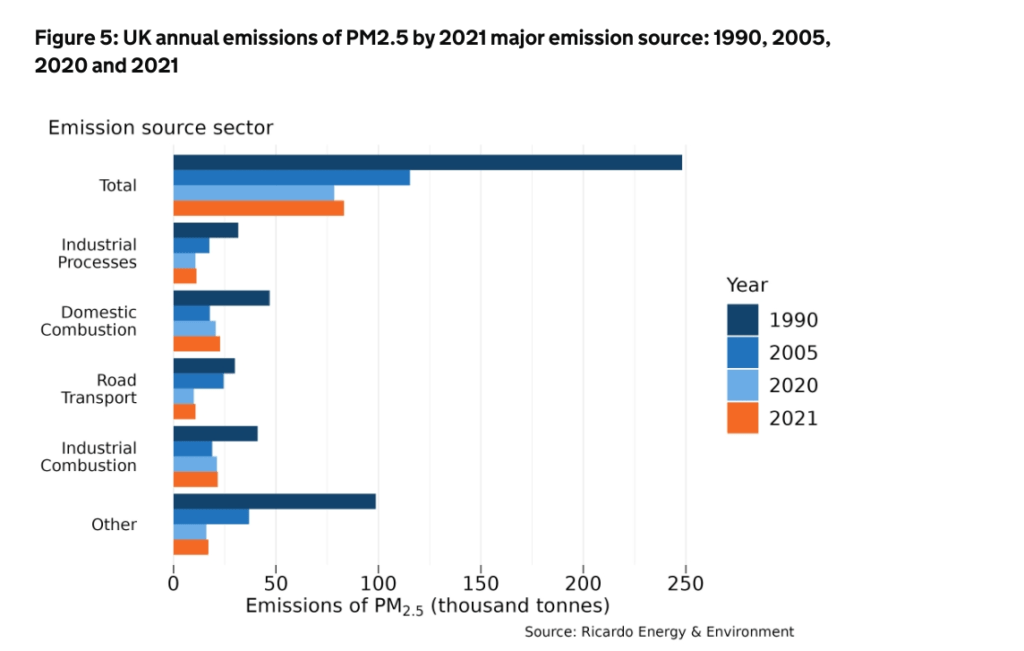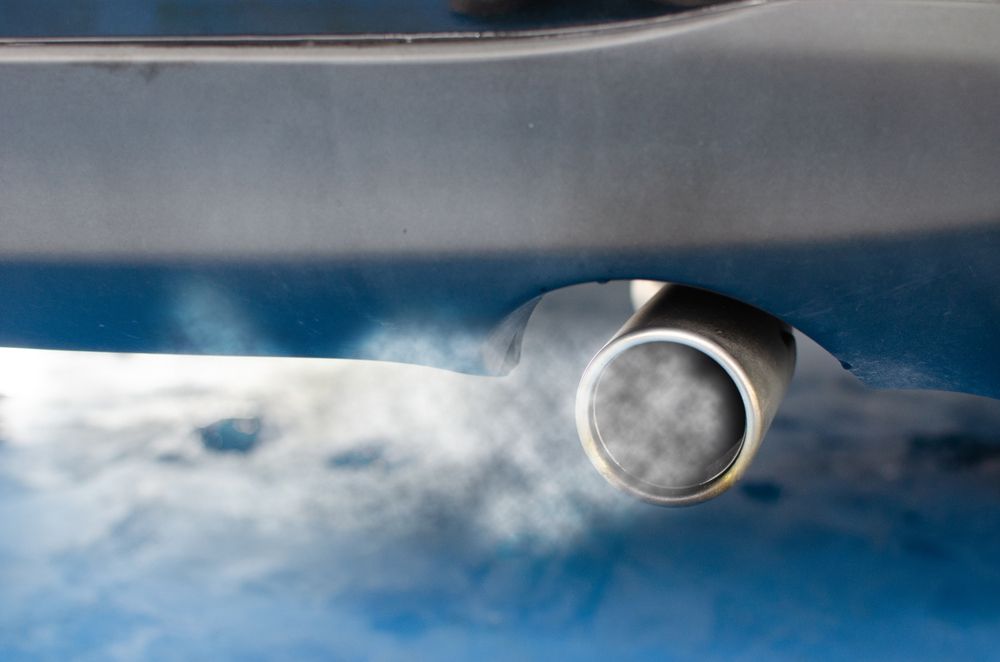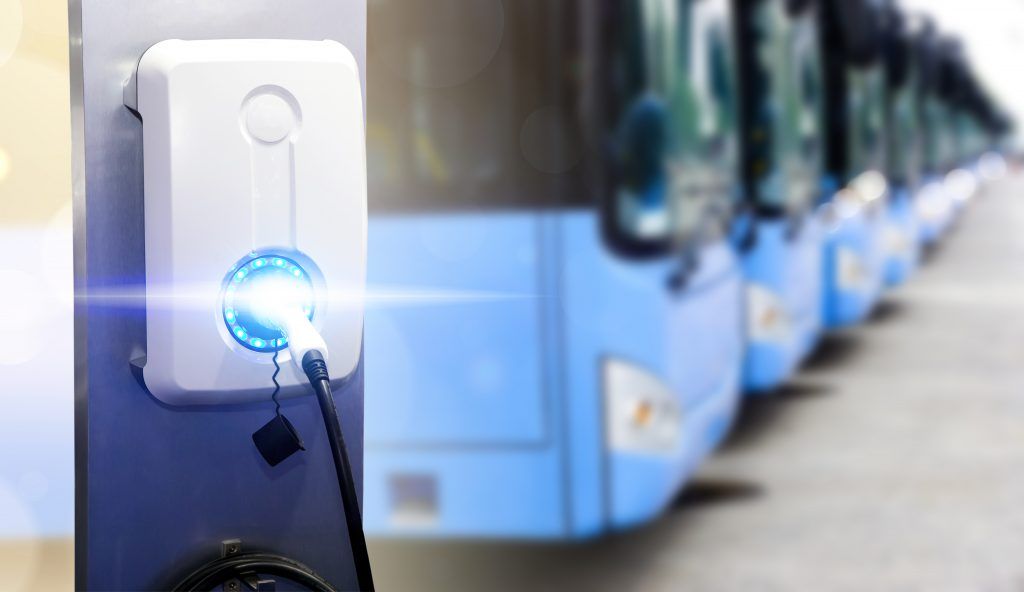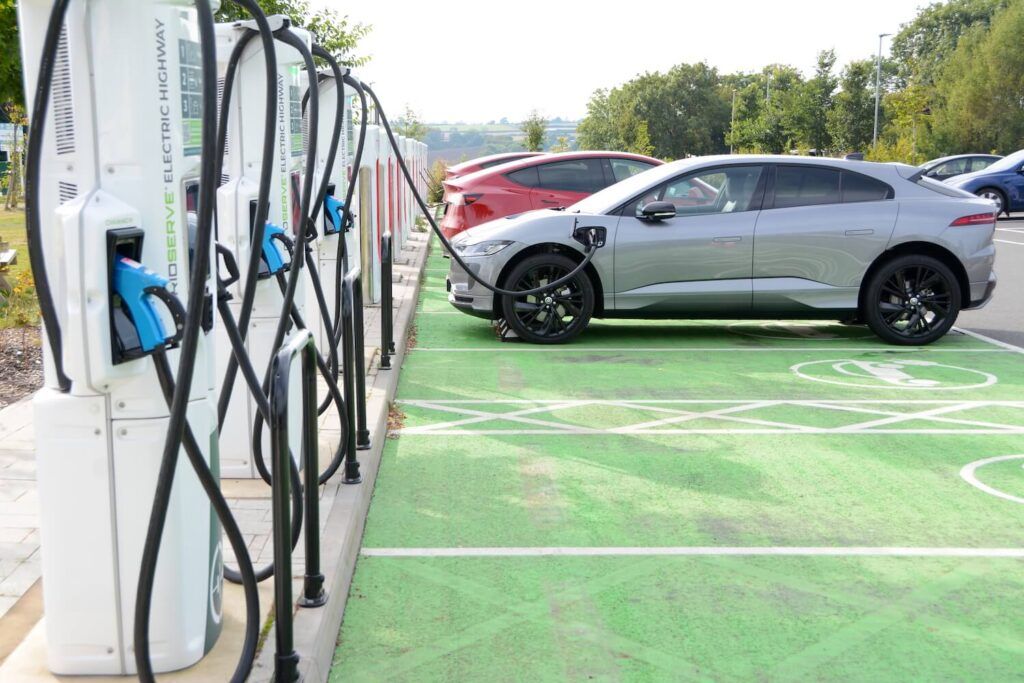The latest set of air quality statistics from the Department for the Environment, Food and Rural Affairs (Defra) has caused a warning from a clean air group.
The data set revealed emissions of air pollution from PM2.5 – particulate matter that is smaller than 2.5 microns in size – had exceeded legal limits and was rising.
Although the source of the pollution is often associated with solid fuel burning in domestic settings, road transportation can also produce the particles – with the issue highlighting the need to integrate both transportation and other energy strategies on clean air and overall air quality across local areas.
Currently, the UK is not hitting WHO PM2.5 air pollution limits – and the latest data suggests the level has risen since last year (see graph below).

Questions have been raised by the Environmental Audit Committee, including MPs such as Caroline Lucas, on why the government hasn’t enforced an Office for Environmental Protection to hit a 2030 deadline on PM2.5 limits.
Speaking about the latest data, UK100 – a group representing councils combining clean air and net-zero strategies – said more needed to be done on the issue.
Interim Chief Executive, Jason Torrance, said: “The latest statistics reveal the worrying scale of the Government’s air quality failures — with the PM2.5 emissions, just about the deadliest air pollutant, not just rising, but exceeding legal limits.
“The Defra secretary’s decision to ignore expert advice from The Office of Environmental Protection (OEP) on WHO PM2.5 limits already looked reckless. Now it looks like a deadly dereliction of duty.”
“There is the ambition across the country to take this issue seriously. Ambitious local authorities have already committed to meeting WHO legal limits in their region and offered to work with Defra to ensure their residents can breathe more easily.
“We urge the Secretary of State to reconsider the OEP’s advice and work with local leaders to stamp out the toxic air crisis sooner rather than later.”
“It’s easy to think of air pollution as just a road transport and exhaust emissions problem, but it is more complicated than that. Domestic wood burning and biomass are the biggest drivers of the recent rise in PM2.5 pollutants.”
Image from Shutterstock












